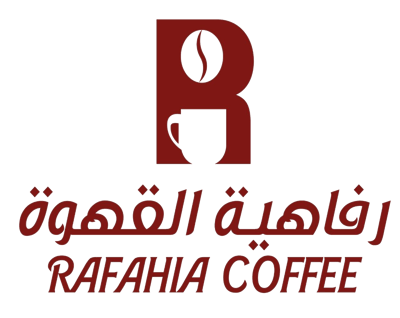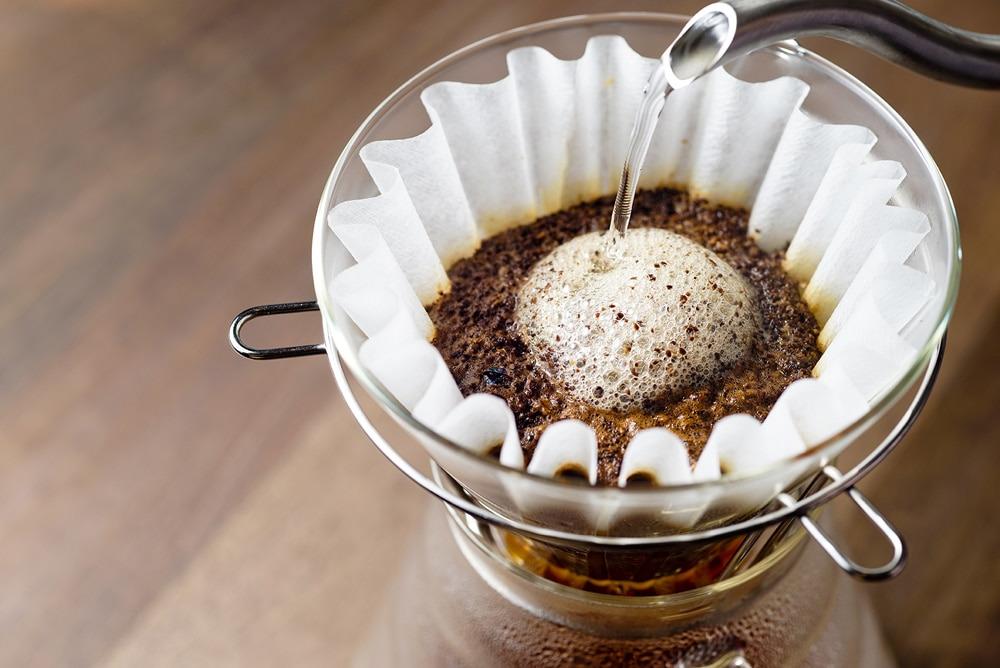There's no doubt that preparing the perfect cup of coffee depends on several factors, including the quality of the beans, the roasting method, and the brewing tools. Among these tools, coffee filters are a crucial element that directly affects the flavor and texture of the coffee. Whether you're a specialty coffee enthusiast or a beginner in the world of manual brewing, choosing the right filter can make a huge difference to your experience. In Saudi Arabia, where the specialty coffee culture is rapidly growing, interest in coffee filters has become an integral part of this experience. In this article, we'll explore the best types of coffee filters in detail, comparing their pros and cons, and offering tips for choosing the right filter for your needs. We'll also highlight the role of the Rafaat Al-Qahwa store in providing high-quality filters and brewing tools in Saudi Arabia.
What are coffee filters and why are they important?
Coffee filters are tools used to separate ground coffee from liquid during coffee brewing, particularly in manual brewing methods such as drip (V60, Chemex, Kalita) or French press. Filters affect:
- Flavor: Filters determine how much oil and sediment passes into the coffee, affecting the clarity and acidity of the flavor.
- Texture: Controls the density of the coffee, whether it is light and smooth or rich and heavy.
- Hygiene: Prevents sediment from entering the cup, ensuring a comfortable drinking experience. Filters are available in a variety of types (paper, metal, cloth) and in sizes and shapes to suit different brewing equipment. Choosing the right filter depends on your brewing method, personal preferences, and environmental considerations.
Best types of coffee filters
1. Paper Filters
- Description: Made of bleached or unbleached cellulose, used with tools such as the V60, Chemex, and Kalita Wave. Available in various sizes to fit distillers.
- Advantages:
- Pure Flavor: Absorbs oils and sediments, producing a light, clean coffee with clear flavors (ideal for Ethiopian coffees with floral flavors).
- Ease of use: They can be disposed of after use, making them practical.
- Availability: Widely available and affordable at places like Luxury Coffee Shop.
- Hygiene: Prevents small sediments from passing through, ensuring a clean cup.
- Disadvantages:
- Environmental impact: Not reusable, increasing waste.
- Recurring cost: You need to buy new filters constantly.
- Impact on flavor: May absorb some of the oils that add richness to coffee.
- Top Brands:
- Hario V60: Cone-shaped filters designed specifically for the V60, available bleached and unbleached.
- Chemex Bonded Filters: Thick and designed to fit Chemex, they produce very pure coffee.
- Kalita Wave Filters: Flat-bottomed, ideal for preparing balanced coffee.
- Ideal Use: For lovers of light, pure coffee, especially with drip methods.
2. Metal Filters
- Description: Made of stainless steel or titanium, it has a fine mesh for use with tools such as the AeroPress, V60, or French press.
- Advantages:
- Rich Flavor: Allows oils and fine sediments to pass through, producing coffee with a thick body and strong flavor.
- Sustainability: Reusable, making it environmentally friendly.
- Long-term savings: One-time investment eliminates the need to purchase frequent filters.
- Durability: Wear-resistant and easy to clean.
- Disadvantages:
- Sediment: May allow some sediment to pass through, affecting the purity of the coffee.
- Cleaning: Requires thorough cleaning after each use to prevent oil build-up.
- Initial cost: More expensive than paper filters.
- Top Brands:
- Able Disk Fine: A metal filter for the AeroPress, balancing rich flavor with purity.
- Hario Metal V60: A metal alternative to paper V60 filters.
- KRUVE Propel: High-precision metal filter for consistent coffee preparation.
- Ideal Use: For lovers of thick, rich coffee, such as Brazilian coffee with chocolate flavors.
3. Cloth Filters
- Description: Made of cotton or hemp, they are used with distillers like Chemex or traditional brewing pitchers. They look similar to paper filters but are reusable.
- Advantages:
- Balanced Flavor: Absorbs some oils but allows a moderate amount to pass through, producing a coffee with a medium body and a pronounced flavor.
- Sustainability: Reusable for up to 6 months with proper care.
- Savings: Reduces the need to purchase frequent filters.
- Disadvantages:
- Maintenance: Requires careful washing and drying after each use to prevent mold or oil buildup.
- Impact on Flavor: May acquire an off-flavor over time if not cleaned thoroughly.
- Impractical: Less convenient for quick use than paper filters.
- Top Brands:
- Barista & Co Cloth Filters: Designed to fit larger drippers.
- CoffeeSock: Organic cloth filters compatible with Chemex and V60.
- Hario Cloth Filter: A custom option for Hario tools.
- Ideal Use: For medium-bodied coffee lovers who are concerned about sustainability.
4. French Press Built-in Filters
- Description: A metal mesh built into the French press, used to separate ground coffee from the liquid without the need for an additional filter.
- Advantages:
- Very rich flavor: Allows oils and sediment to pass through, producing a dense coffee similar to espresso in texture.
- Ease of use: No need to purchase separate filters.
- Durability: Part of the French press tool, making it durable with care.
- Disadvantages:
- Sediment: Produces coffee with noticeable sediment, which may not be suitable for everyone.
- Cleaning: Requires careful disassembly and cleaning to remove oils.
- Restrictions on use: Not suitable for drippers such as V60 or Chemex.
- Top Brands:
- Bodum French Press Filters: Alternative filters to Bodum tools.
- Le Creuset French Press: Includes a high-quality metal filter.
- Ideal Use: For lovers of heavy, rich coffee, especially with Colombian or Indonesian coffee.
5. Ceramic Filters
- Description: Rare filters made of porous ceramic, used in some specialized distillation equipment. Similar to metal filters but less common.
- Advantages:
- Clean Flavor: Produces clean coffee while retaining some oils.
- Sustainability: Reusable and durable.
- Aesthetic Appearance: Adds a luxurious touch to the preparation experience.
- Disadvantages:
- High cost: Much more expensive than paper or metal filters.
- Limited Availability: Uncommon and hard to find.
- Maintenance: Requires careful cleaning to prevent clogged pores.
- Top Brands:
- Ceraflame Ceramic Filter: A rare Brazilian option for brewing pure coffee.
- Kinto Ceramic Filter: Compatible with some Japanese distillers.
- Ideal Use: For professionals and coffee lovers looking for a premium brewing experience.
Comparison of filter types
- Flavor and texture:
- Leafy: A light, pure coffee, ideal for fruity flavors.
- Mineral: Rich, dense coffee, suitable for dark flavors.
- Fabric: A balanced coffee with a medium body.
- French press: Strong coffee with noticeable sediment.
- Ceramic: Pure coffee with a light to medium body.
- Sustainability:
- Paper: Unsustainable due to waste.
- Metal, fabric, and ceramic: sustainable and reusable.
- French Press: Sustainable as part of the tool.
- Cost:
- Paper: Cheap but requires repurchase.
- Metal and fabric: Moderate initial cost with long-term savings.
- Ceramics: High cost.
- French Press: No additional cost.
- Ease of use:
- Paper and French press: Easier to use and clean.
- Metal, fabric, and ceramic: require more maintenance.
Tips for choosing the right filter
- Select the preparation method:
- V60 or Chemex: Use paper or cloth filters.
- AeroPress: Paper or metal filters.
- French Press: Rely on the built-in filter or add an additional metal filter.
- Select your flavor preferences:
- If you prefer pure, light coffee, choose paper filters.
- If you like rich, intense coffee, choose metal filters or a French press.
- Environmental considerations:
- If you care about sustainability, choose metal or fabric filters.
- If you prefer convenience, choose paper filters and make sure they are recycled.
- Tool compatibility:
- Make sure to purchase filters that fit the size and shape of your brewing tool (such as square Chemex filters or conical V60 filters).
- Maintenance:
- If you don't prefer intensive cleaning, avoid cloth or ceramic filters.
- Test different types:
- Try more than one type of filter to determine which one best suits your taste, such as trying a paper and metal filter with the same beans.
- Rely on reliable sources:
- Purchase filters from trusted stores like Luxury Coffee Shop to ensure quality and compatibility.
Tips for using filters effectively
- Rinsing Paper Filters: Before preparing, rinse the filter with hot water to remove the papery taste and warm up the tool.
- Cleaning metal and fabric filters: Wash them thoroughly after each use with hot water, using a soft brush if necessary.
- Storage: Store paper filters in a dry place, and cloth filters in clean water in the refrigerator between uses.
- Grind Control: Use a medium to fine grind with paper filters, and a coarse grind with metal filters or a French press.
- Monitor brewing time: If the distillation is too slow, the filter may be clogged or the grind too fine.
The role of the luxury coffee shop in improving the coffee preparation experience
Luxury Coffee Shop is your ideal destination in Saudi Arabia for high-quality filters and brewing tools:
- Various Filters: Offers paper (Hario, Chemex, Kalita), metal, and cloth filters to fit all brewing appliances.
- Specialty coffee beans: such as Otavo beans from Ecuador, ideal for testing different filters.
- Brewing Tools: Drip pitchers, coffee scales, and V60 and Chemex tools for professional brewing.
- Additional equipment: Ice machines like the Euroice FD-70 for cold brew coffee, and coffee grinders to ensure fine grinding.
- Training courses: Courses to teach coffee lovers how to use filters and prepare specialty coffee.
- Fast delivery: Shipping to Riyadh, Jeddah, Dammam, and all over the Kingdom. Invitation to shop: Shop now at the Rafah Coffee store for high-quality filters, specialty coffee beans, and brewing tools to enhance your experience. Take advantage of exclusive offers and fast delivery.
Finally, coffee filters are key to brewing a cup of coffee that reflects your taste and preferences. Whether you prefer the pure flavor of paper filters, the rich texture of metal filters, or the balance offered by cloth filters, choosing the right filter depends on your brewing method and goals. In Saudi Arabia, where the specialty coffee culture is evolving, you can count on Rafah Al-Qahwa to provide the best filters, beans, and tools for an exceptional coffee experience. Try out the different types of filters today and discover how a simple change can make a big difference in your cup.

